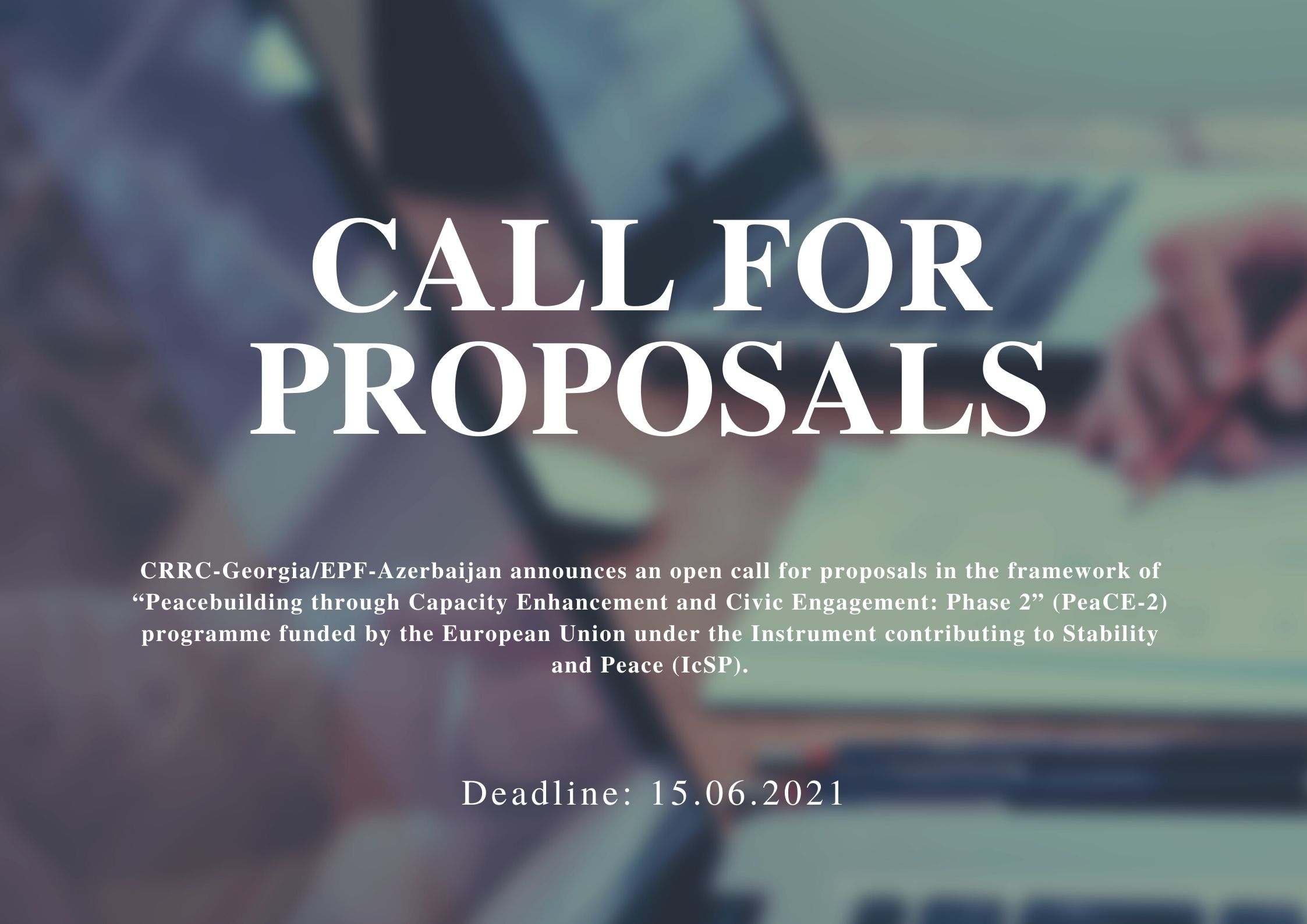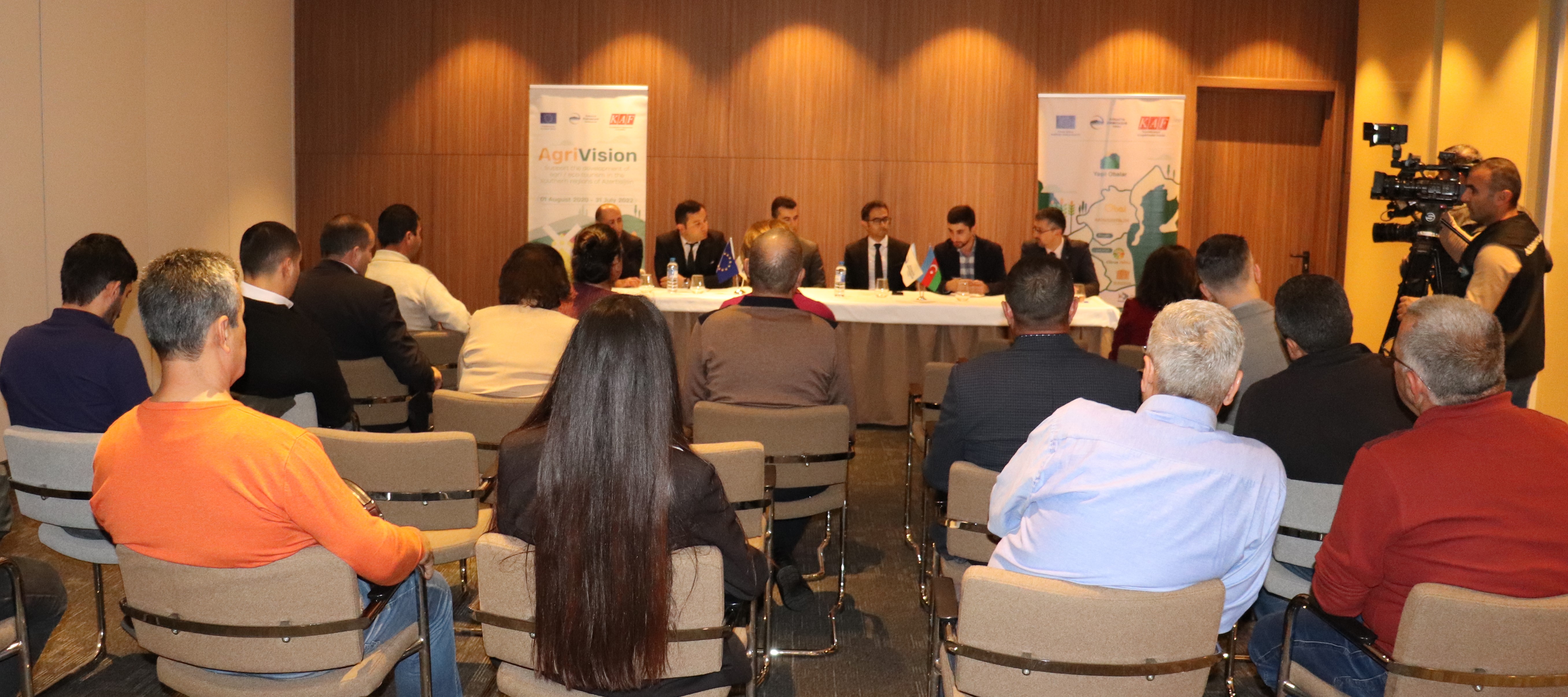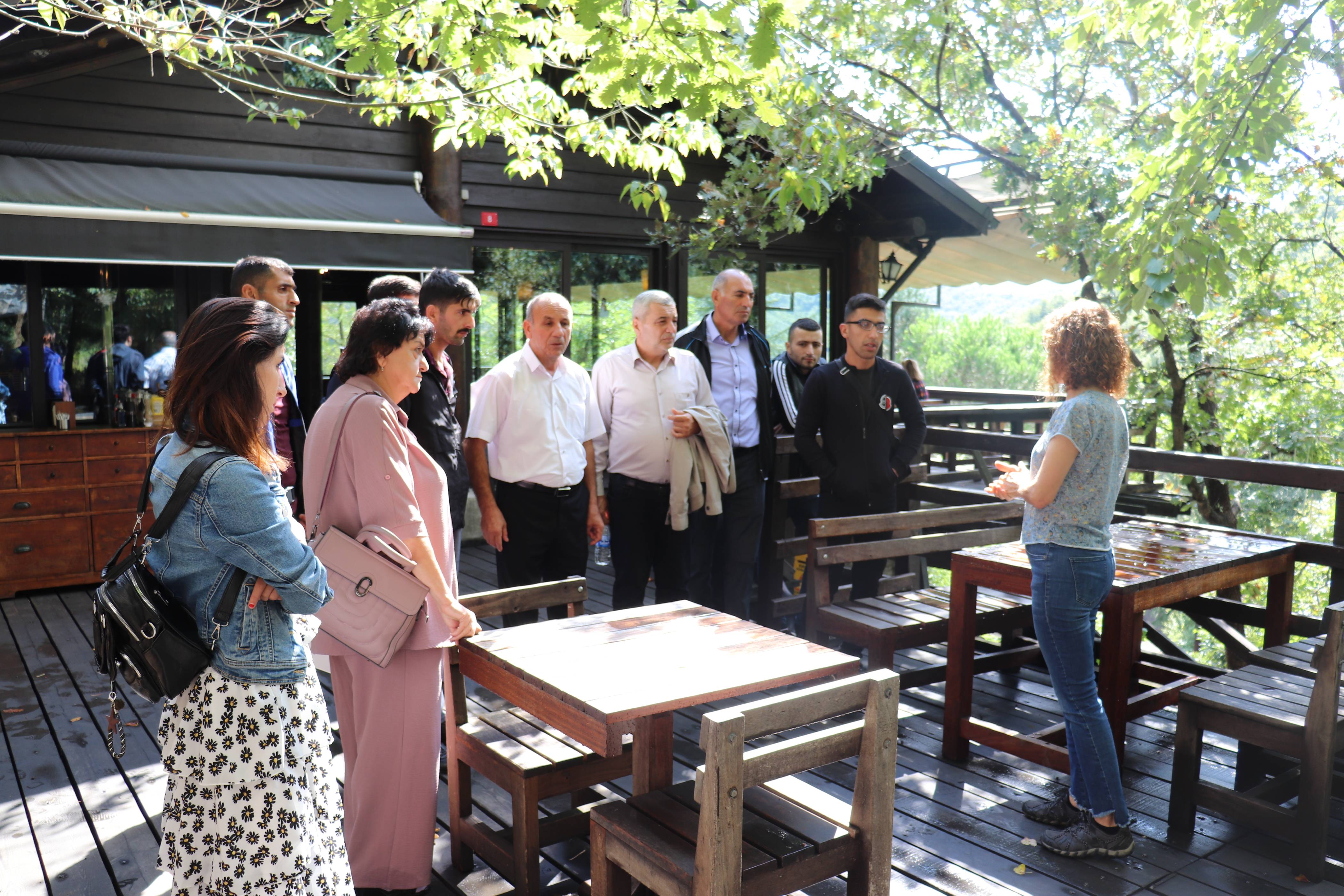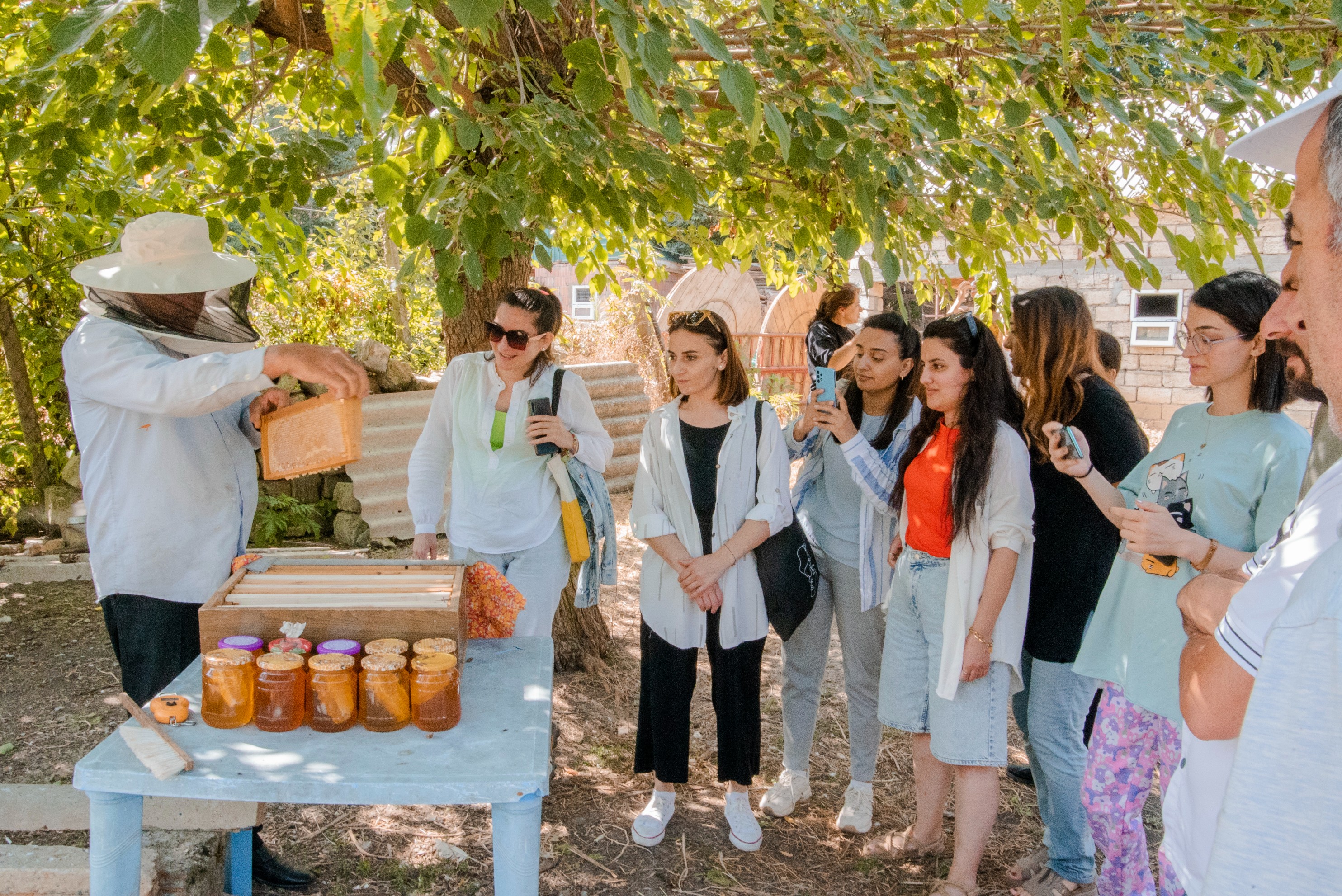Call for Proposals

The Call is offered by the Caucasus Research Resource Centre in Georgia and facilitated by Eurasia Partnership Foundation in Azerbaijan in the framework of “Peacebuilding through Capacity Enhancement and Civic Engagement: Phase 2” (PeaCE-2) programme funded by the European Union under the Instrument contributing to Stability and Peace (IcSP).
Description:
The call aims to re-engage people and communities from geographic areas affected by the Nagorno-Karabakh conflict and facilitate the engagement of interested civil society actors and grassroots organizations in improving human security and a future-oriented, peaceful outlook.
This call enables individuals and organizations to implement innovative in-country initiatives promoting peace in the South Caucasus particularly in regards to the Nagorno- Karabakh conflict, and addressing needs of people and local communities affected by the NK conflict. These initiatives should focus on (but are not limited to) one or more of the following areas and target groups in random order:
Target groups:
- Youth
- Women
- Communities affected by the conflict
- Refugees and IDPs
- Persons with disabilities (as a result of the conflict)
- Ethnic and religious minorities
- War veterans
- Professional categories aiming to deal with the consequences of the NK conflict (e.g.
social workers, psychologists, education professionals, etc.)
Areas:
- Education
- Human and leadership capacity building and development
- Civic activism aiming to deal with the consequences of the NK conflict
- Human security and management of emergency situations
- Enhancing women’s participation (or women empowerment)
- Post-war reconstruction
- Confidence-building (including dealing with the past)
- Dialogue between different social or professional groups
- Policy relevant advocacy and research.
Eligibility of applicants:
Non-profits (NGOs, foundations), for-profits[1] (e.g. small and medium enterprises) and individuals are eligible to apply.
Preference will be given to local applicants (non-profits, for-profits and individuals) who come from geographic areas affected by the Nagorno-Karabakh conflict. International applicants will need to prove maximum value added in terms of engaging and empowering local actors.
Non-profits and for-profits should be able to prove that they have:
- Formal registration and availability of a bank account;
- Sufficient administrative, financial and technical capacity to implement an initiative;
- Demonstrable good track record of working with donors in the past.
Individuals should be able to demonstrate a suitable track record, e.g. educational background, professional affiliation(s), engagement in similar initiatives in the past (if at all).
NOTE: Individual applicants are expected to propose smaller-scale initiatives that can be managed by one person, e.g. writing and publishing a book, doing research, creating multimedia products, etc. In case an individual applicant proposes a larger-scale initiative involving a team of implementers, he/she must assume responsibility and demonstrate ability for a proper financial management of the proposal.
Budget and timeframe:
From the technical point of view, a service contract will be provided to a beneficiary or a group of beneficiaries in the aggregate amount of up to EUR 25,000 to implement an in-country initiative. Please note that cost-efficiency is one of the most important selection criteria; therefore, keep your budgets as low as possible.
The implementation period of a proposed initiative should not exceed 12 months.
Application and selection process:
The Call will be open for applications from May 2021 through September 2021. Applicants are invited to submit their Full Proposals in the requested format (Annex 1: Proposal Form) to info@epfound.az before one of the two interim submission deadlines: June 15, 2021; and September 15, 2021. This notice is subject to availability of funding.
Prior to each of the above interim submission deadlines all interested applicants are asked to submit a brief notification (one sentence is sufficient) to info@epfound.az for EPF-Azerbaijan/CRRC-Georgia to build an email list. In case of any questions or request for additional information, please contact us via info@epfound.az.
The language of the proposal can be English, or Azerbaijani. In case if the proposal is submitted in Azerbaijani, brief explanation with key activities in English should be submitted along with Proposal Form. However, the narrative and financial reporting of the activities within the proposed initiatives should be submitted in English.
The applications will be reviewed in accordance with the following criteria:
- To what extent is the initiative relevant to the aims of the call? To what extent does the initiative address the needs of people and local communities affected by conflict, and provides tangible impact on improving their lives?
- To what extent is the initiative feasible? Is there evidence for the ability to contribute to solving the identified problem? Are external stakeholders (gendered dimension) analyzed properly? NOTE: Feasibility also refers to the possibility of the proposed proposal’s implementation under the continued COVID-19 crisis.
- To what extent does the initiative focus on target groups and areas mentioned above on page 1?
- To what extent does the applicant demonstrate adequate capacity to implement the initiative? It also refers to the peacebuilding capital an organization/individual brings to the initiative.
- To what extent are risk factors and their mitigation strategies well explored?
- To what extent does the initiative provide measurable and realistic long-term results/outcomes and sustainability of one or more of the initiative’s components?
- To what extent is the initiative cost-efficient? Is the budget realistic and relevant to the activities proposed?
- To what extent does the initiative respect the do-no-harm principle in its objectives, implementation approach and communication?
- To what extent is the initiative creative and innovative, and different from existing initiatives?
Pre-selection and post-selection process:
The entire process from the time when the selection decision was made to the expected start time of the selected Full Proposal may take about one calendar month. In the course of this month, successful applicants (nonprofit and for-profit) will be required to undergo a Pre-selection Interview (an online interview in case the COVID-19 crisis continues). The due diligence interviews will be conducted with the key staff in the beneficiary organization, which will help assess organizational capacity and identify risk factors that may impact the ability to implement the initiative and to be fiscally responsible. Successful individuals will also have a Pre-selection Interview (an on-line interview in case the COVID-19 crisis continues), which will help assess the capacity of the individual applicant to implement the proposed initiative. The selection decision may be reverted in case the Pre-selection Interview demonstrates that the applicant’s capacity to implement the initiative is questionable
The successful applicants (non-profits, for-profits and individuals) will also need to attend a Management Seminar, which they will be additionally informed about by EPF-Azerbaijan/CRRC-Georgia. The Management Seminar is a workshop that helps the beneficiaries to understand requirements with regard to the organizational and financial management of the proposed initiative.
Following the Management Seminar, the beneficiaries will sign a service contract with CRRC-Georgia.
The selected proposals are expected to start within two calendar months after the service agreement is concluded. The implementation period of these initiatives should not exceed 12 months.
Throughout the initiative’s life cycle, the beneficiaries will submit periodic financial and narrative reports to EPF-Azerbaijan/CRRC-Georgia. EPF-Azerbaijan/CRRC-Georgia will make the next disbursement only upon the approval of both the financial and narrative reports. The staff will conduct occasional site-visits (or interviews) to assure adequate progress in the implementation of the supported proposals. The supported proposals will undergo external evaluation and (financial) audit.
EPF-Azerbaijan/CRRC-Georgia will assist the beneficiaries with networking, as well as will advise them on the nuances of publicity regarding the supported proposal. EPF
Azerbaijan/CRRC-Georgia will also include the beneficiaries into the mailing list
to keep them updated on opportunities, including capacity-building
opportunities.
[1] Service contracts with for-profits should not have the purpose or effect of producing a profit within the framework of the initiative. Any possible profit generated by a for-profit beneficiary should be directed to support the purposes of the initiative.

The closing press conference of the “AgriVision” project was held.
On November 25, the closing press conference of the “AgriVision” project, financed by the European Union, implemented jointly by Eurasia Partnership Foundation and “Constitution” Research Foundation, was held. Since 2020, the project has provided support for the further development and additional income of small and medium enterprises in the Lankaran-Astara Economic Region. The main goals […]
Read More Nov 26
Another study tour was organized for representatives of agri/eco tourism destinations.
Within the framework of the “AgriVision” project implemented by Eurasia Partnership Foundation with the financial support of the European Union, representatives of selected agri/eco-tourism destinations from the Lankaran-Astara economic region participated in the next study tour in Turkey on September 12-16. The main objective of the tour was to equip the participants with ideas and […]
Read More Oct 5
EU project organized visits to agri-tourism destinations in the southern region.
Within the framework of the “AgriVision” project funded by the European Union and implemented by Eurasia Partnership Foundation and “Constitution” Research Foundation, “Open Farm Days” – free-of-charge trips organized to agri-tourism destinations located in Lankaran, Astara, and Lerik regions on July 22, 23 and 24. Transportation, entrance to tourism destinations, and tea break expenses were […]
Read More Aug 28